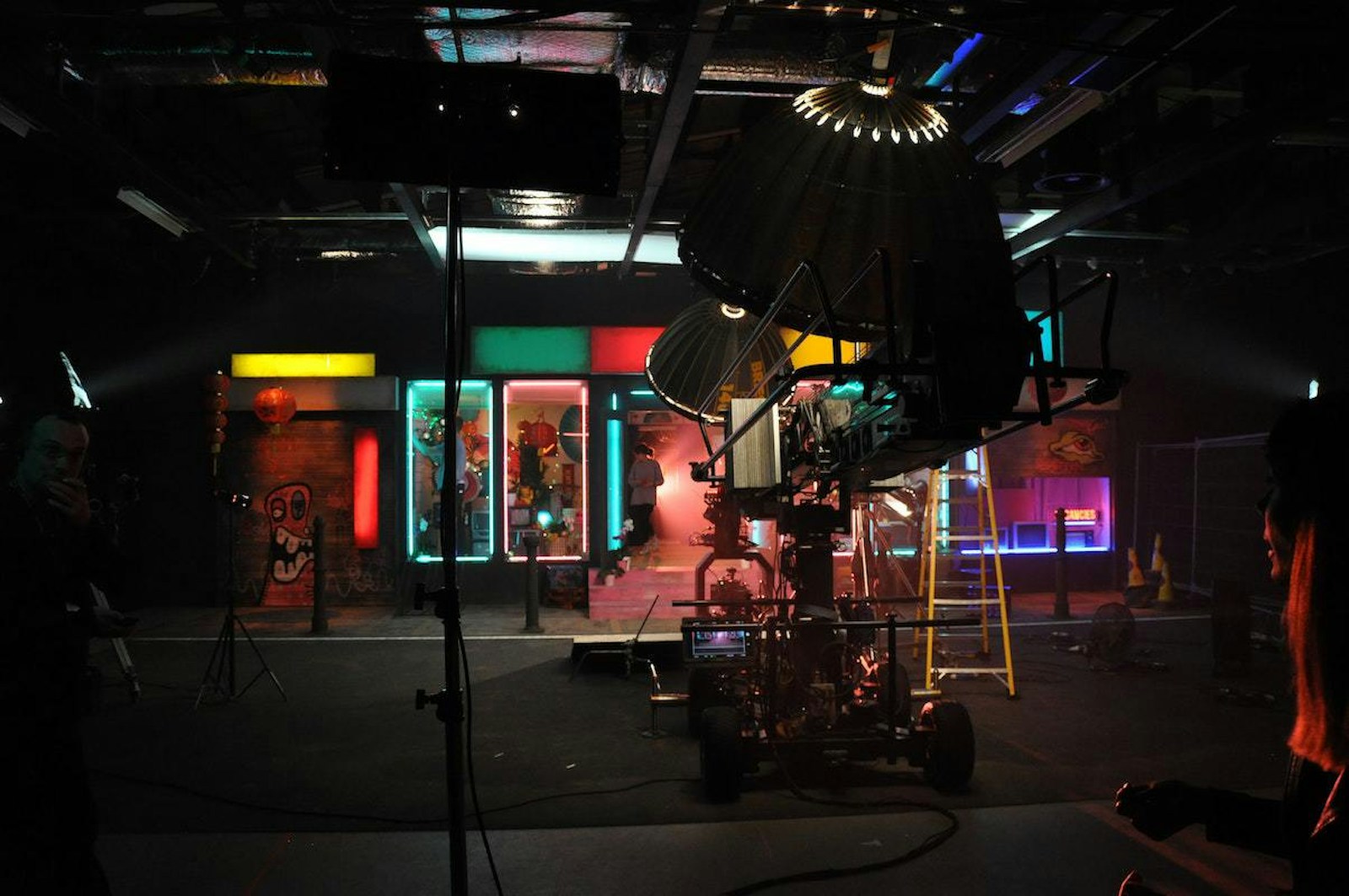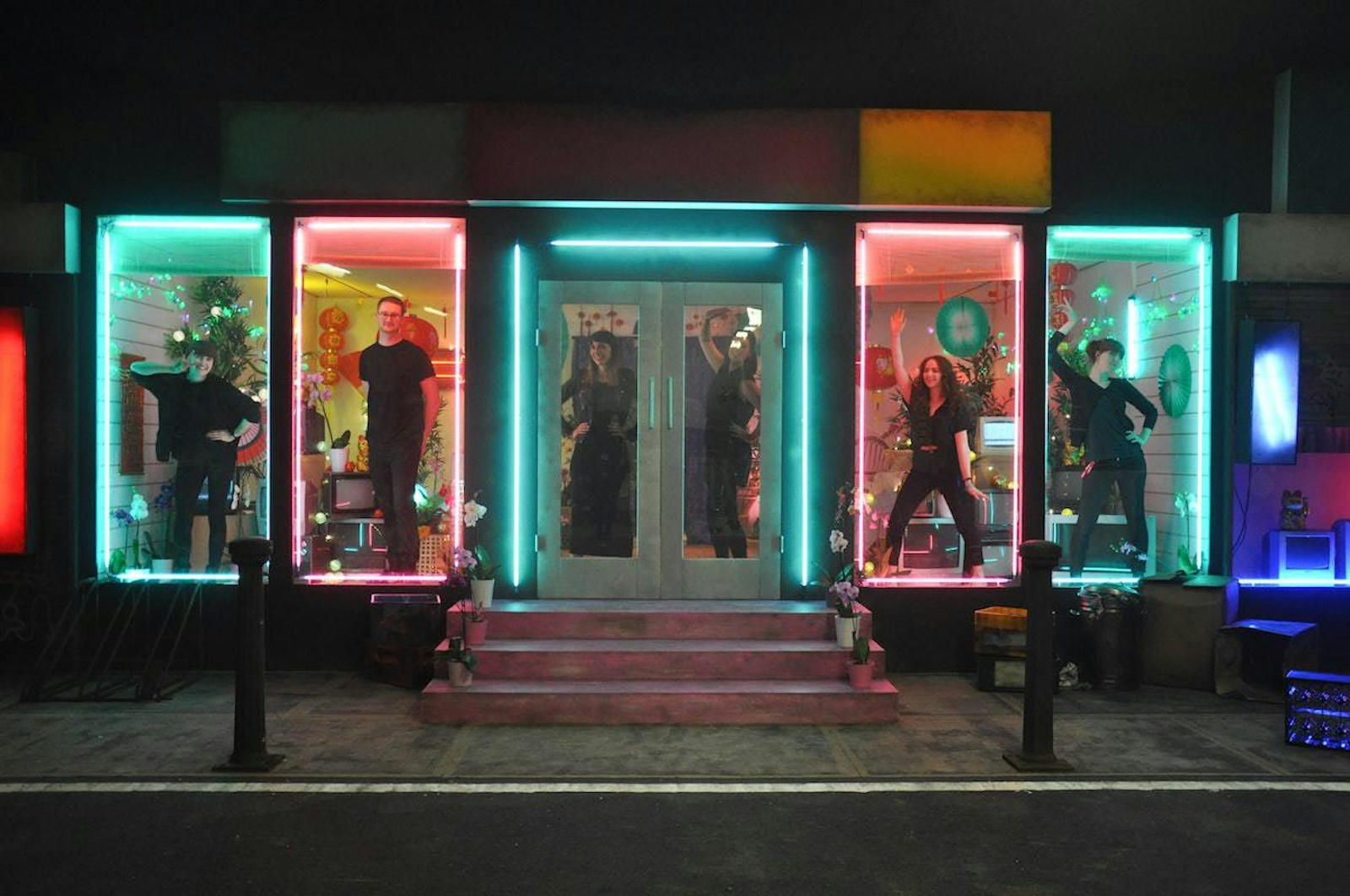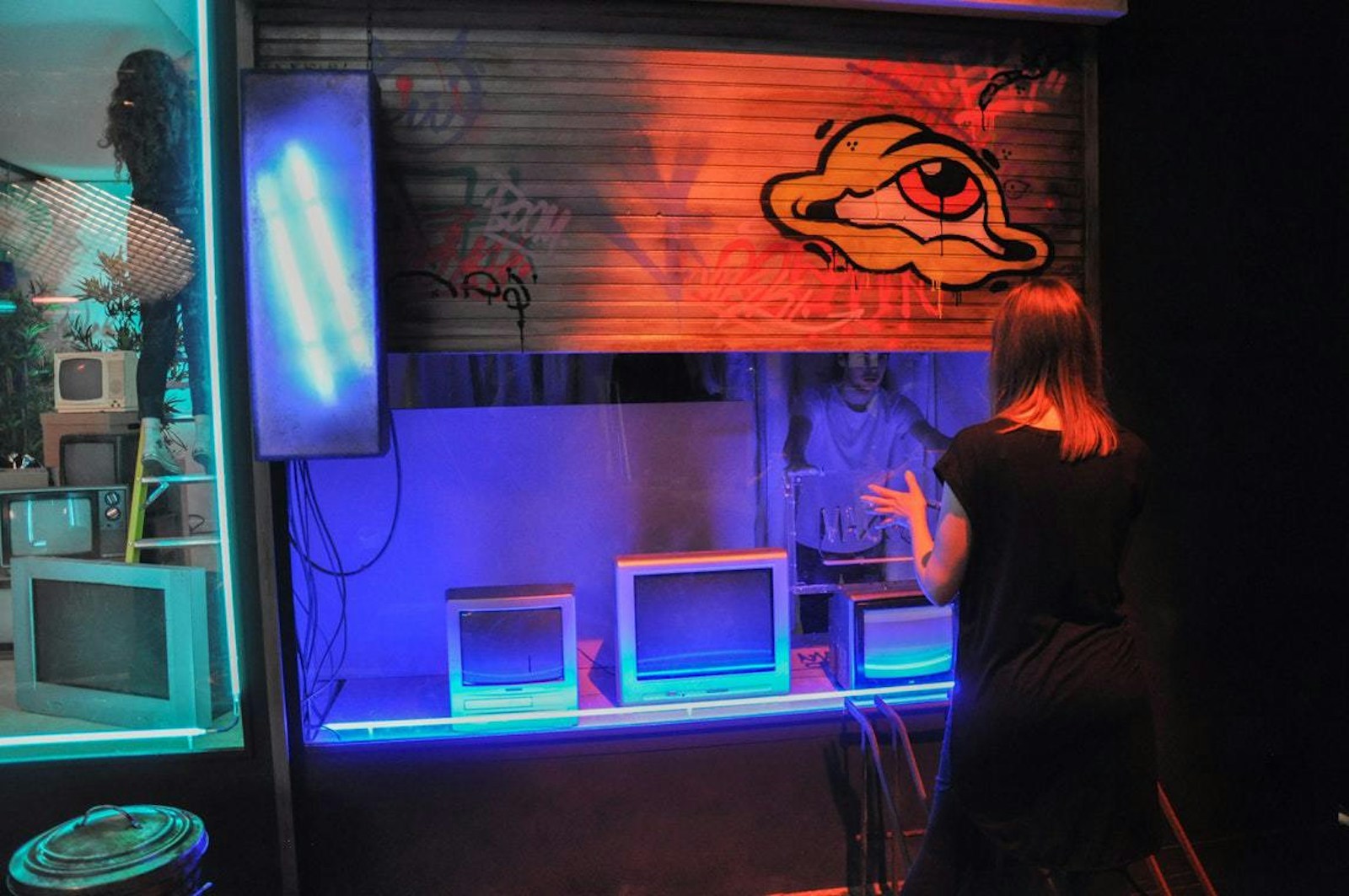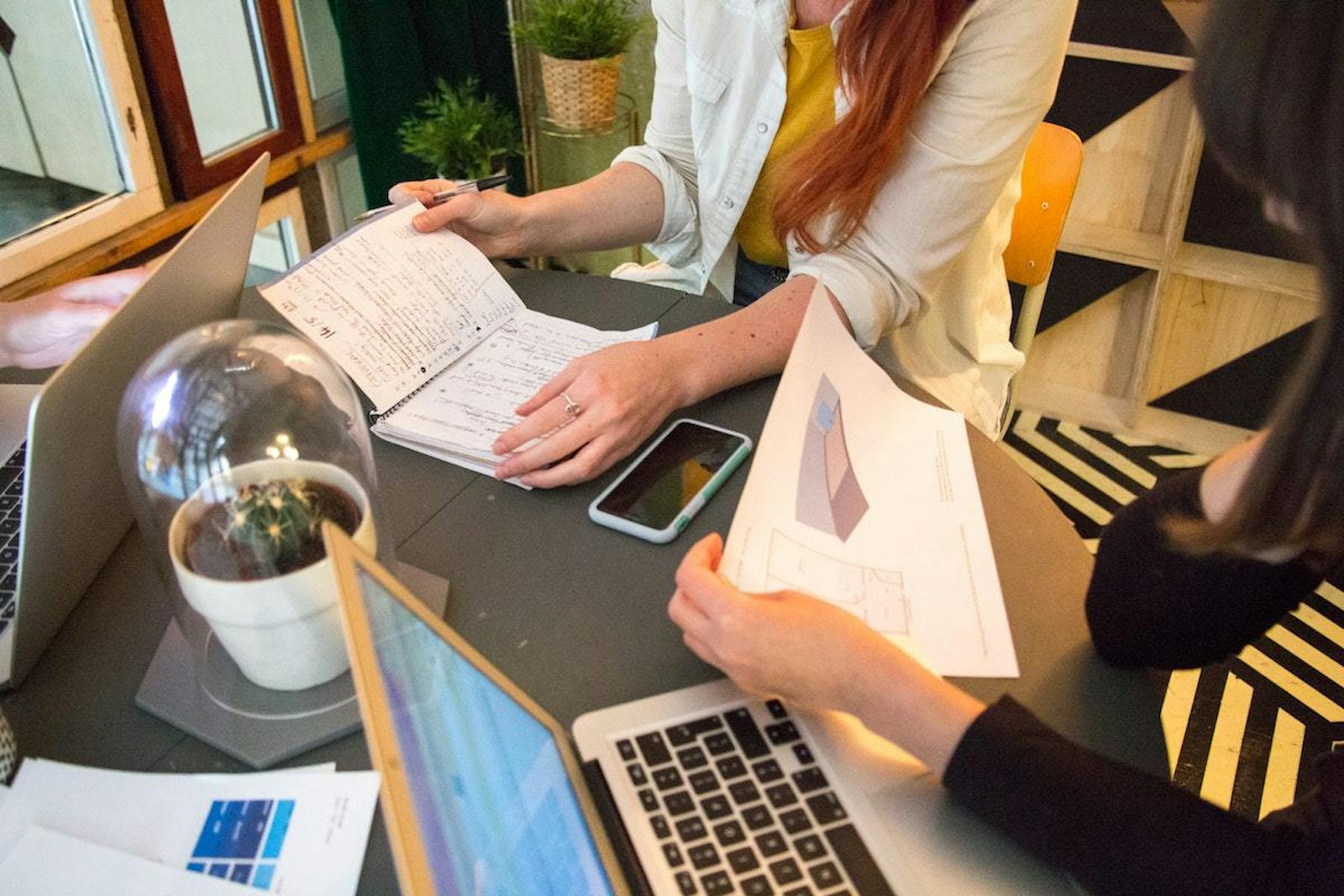Making it happen: Lord Whitney’s creative producer, Lins Wilson
In her final year at university, Lins Wilson realised that bringing people together was her real strength: “I was good at making creative projects happen, whether it was an exhibition, gig or a photography book.” An integral part of the Lord Whitney team, as creative producer she balances everything from schedules and budgets to sourcing materials and freelancers. With a clear head for logistics, Lins also balances her job with personal pursuits as a musician and freelance producer. We caught up with Lins to find out more about the 'creative jigsaw puzzle' that has been her career journey thus far.

Lins Wilson
Job Title
Part-time Creative Producer, Lord Whitney (2012–present)
Based
Leeds
Previous Employment
Associate Producer for Transform Festival, Leeds (2017–present)
Musician (2005–present)
International Student Assistant at University of Leeds (2008–2011)
Education
BA Visual Communication, Leeds Arts University (2004–2008)
Website
Social Media
Day-to-Day
How would you describe your job?
My role is core to Lord Whitney as an organisation. As creative producer, I work closely with the creative directors, Amy and Rebekah, to run projects, bring in work and help manage our team and studio. My day-to-day responsibilities include a lot of logistics and planning for our projects. On commercial projects this tends to be managing budgets, booking travel and accommodation, sourcing and ordering materials and props and helping to manage freelancers. For our arts projects I often lead on setting these projects up, bringing in collaborators, working on funding applications and more creatively with concepts and narratives.
What does a typical working day look like?
Our working hours are typically from 10am to 6pm in the studio, but it depends on whether we have an installation or shoot. I don't tend to go on the commercial shoots in London as my work is more prep-based than on set – unless it's audience facing, then I'm pretty heavily involved.
What do you like about working in the part of the UK you’re based in?
The creative scene in Leeds is great – we know and work with so many talented, hard-working people stretching across the worlds of design and digital to music and theatre. I'm also a musician, so Leeds' music scene has been a massive reason for me being here for nearly 15 years. It is pretty tough to earn within the city itself specifically in terms of what we do, but the location is great as it's central and well connected. We have an amazing studio where we rent an entire old mill building, which just wouldn't be possible in the south, so that's a massive bonus. We make the most of our creative community here in terms of collaboration, passing work and contacts to each other – everyone is super supportive of each other.
How did you land your current job?
It happened very naturally through a conversation with Rebekah – we got to know each other when she offered to help out on a music video my band was making. I think my role has been pretty unique in that it has helped shaped the organisation and the kind of work we do, rather than the traditional route of applying for an existing job.
Where does the majority of your work take place?
I'm usually huddled away, typing in our little office room. I spend a lot of time at the computer, but I try to get away from the desk for parts of the day and am sometimes involved in more physical aspects such as prop sorting, painting, van-loading, studio tidying and running events. We have a very democratic way of working, where everyone has their roles and responsibilities, but everyone pitches in on the most basic levels. There's a hierarchy in terms of design or decision making, but we all clean the toilet!
How collaborative is your role?
Very, particularly with Amy and Rebekah, and especially on larger creative projects. Also with other members of the team which can include set builders and graphic designers, and more externally with clients. My role can be very people-focused which is one of my favourite things about it – I love bringing people together and working out how to make things happen whether it's a photoshoot, theatre piece or studio party.
“I love bringing people together, whether it’s a photoshoot, theatre piece or studio party.”
What are the most and least enjoyable aspects of your job?
If you don't have mundane tasks as part of your job, you're probably lying. Mine are mostly admin tasks such as inputting receipts or dealing with printers, but you just have to get on with those things. The team, atmosphere, environment and background tunes all help.
I have a good work-life balance, but the job can take over your life. We're all getting better at time management, delegating to others and getting more sleep! When you're building a new company you have to be prepared for that uncertainty, instability or living off not much for a long time, it takes a certain kind of person, vision and drive to do it.
What has been the most exciting project of the last twelve months?
I really enjoyed working on a pop-up experiential event that we did for Netflix last year in Manchester. We created sets that represented some of their shows and invited the public to have high-end photos and videos taken in the spaces. It was great to see fans of the shows really enjoying what we had created. My role was to make it happen, coordinate the team and materials, and work on the audience experience, creatively and logistically.
What skills are essential to your job?
Being super-organised, adaptable, unflappable, personable, collaborative, driven and able to do some serious multi-tasking.



Do you run any side projects alongside your job?
Yes, I work as a freelance producer as well, often on projects for Transform, an International Festival of Theatre here in Leeds. I'm also a musician and have my own band (Magic Mountain). I also create my own installation work which is a combination of experimental soundscapes, storytelling, projection and set (called Buffalo). It's really important to have your own creative projects. The last 10 years for me have been an interesting creative jigsaw puzzle!
What tools do you use most for your work?
I mostly use a Mac for word documents, spreadsheets and email, but also some InDesign and Photoshop. I always have a notebook for ideas and lists (which are also organised on Trello) and we have a large blackboard for keeping track of projects. We're all kind of technophobic at Lord Whitney and prefer things that are hands-on.

How I Got Here
What did you want to be growing up?
I wanted to be a writer or animal rescuer! As a teenager I wanted to be a musician. It took me until my 3rd year at university to realise that I was good at making creative projects happen, whether it was an exhibition, gig or a photography book, and that it was ok to not be so specialised.
What influence has your upbringing had on your work?
I was fortunate to have parents who always encouraged me to do what made me happy. They could have easily pushed me down a more academic route, as I was lucky enough to achieve good grades. I was always encouraged with my music and to take opportunities that didn't exist to their generation.
How (if at all) is the subject you studied useful to your current role?
It was definitely useful. It gave me a taster of lots of different things, so I have basic skills in creating and editing video, photography, some making, sound and also written work. Our course was very ideas-heavy, with the practise side almost being more of a means to bring those ideas to life. Ideas are a huge part of Lord Whitney and it's great that I have practise in that and a good understanding of the visual arts, even though I'm not a designer here. Having skills and ideas that cross over is definitely helpful in what we do.
“We’re all kind of technophobic at Lord Whitney and prefer things that are hands-on.”

What were your first jobs?
I've had odd jobs since I was 13, so I have a strong work ethic which is very useful in what we do. I also worked at the University of Leeds where I learnt office systems and admin, organised activities and assisted students. I now have quite a unique crossover of skills, which is really handy for my job now. I never did an internship, just started working with Lord Whitney to help build their vision.
What in particular helped you the most at the start of your career?
Myself I guess! I think being open and up for anything, enjoying a challenge and willing to build on a vision has been crucial in starting on this journey into creative production and projects. Being self-sufficient but adaptable to others is pretty key. I also had a great tutor at university who told me how many different roles she'd had over 20 years; that really helped my way of thinking at the start – that you can always change; yourself or your situation.
Was there a particular project you worked on that helped your development?
Working with Lord Whitney on festival installations at the beginning was a pretty steep learning curve, particularly in having the confidence to make decisions and not be afraid of things going wrong, because sometimes they do. We've learnt so much over the last few years.
“The biggest challenge has always been how to earn money from art, especially in the current climate.”
What skills have you learnt along the way?
I've learnt a lot about collaboration, and how to work with clients. We're all constantly adapting, particularly as we work on projects across so many industries – TV shoots are very different to say a fashion shoot.
What’s been your biggest challenge?
The biggest challenge has always been how to earn money from art – and especially in the current climate which seems unlikely to change any time soon. It's great to be motivated, but I think it’s a mistake to try and do it all – it's not physically possible! It's important not to be afraid of change or to be constructively critical of yourself in order to improve your work and life.
Is your job what you thought it would be?
Because we created and adapted my role, I didn't really have any preconceptions going in to it. Perhaps one misconception was simply how long things take when working physically rather than digitally – something we're a lot better at managing now in terms of people power and something we're slowly getting clients to recognise!

Thinking Ahead
What would you like to do next?
I would like for us to strike a bit more of a work-life balance with the long-term goal of becoming more stable as a company, but being flexible enough to do our own work. My personal goals are to record an album and begin a new installation piece, but also to work towards more 'grown up' things – such as thinking about a family, which is tricky with three women at the helm of a small company. That'll be another learning curve to come for us all.
Could you do this job forever?
I actually think I could – it's ever changing, nothing is ever quite the same. It's a great space with awesome people, and the work is usually interesting and challenging.
What do you feel is the natural career progression for someone in your current position?
As a core member of the team there isn't space to move 'up' as such, just to develop the role as the business takes on larger projects and hand over some of the smaller tasks to another team member. If I wanted to I could work towards a production job in a larger company which would likely mean moving to the capital – not something I really see myself doing, as I love the quality and pace of life here in Yorkshire.
Words of Wisdom
What advice would you give to a young creative wanting to do the same kind of work?
Be open, forthcoming, confident in meeting people and say yes to lots of projects. But be careful not to overwork (and overplay). Working in the creative industry can take its toll, so look after yourself mentally and physically. Try to avoid toxic people, (in work and in life) and try not to take on other people's stresses. Stick to your guns and believe in yourself.
Interview by Indi Davies
Mention Lins Wilson
Mention Lord Whitney
Photography by Sophie Stafford






